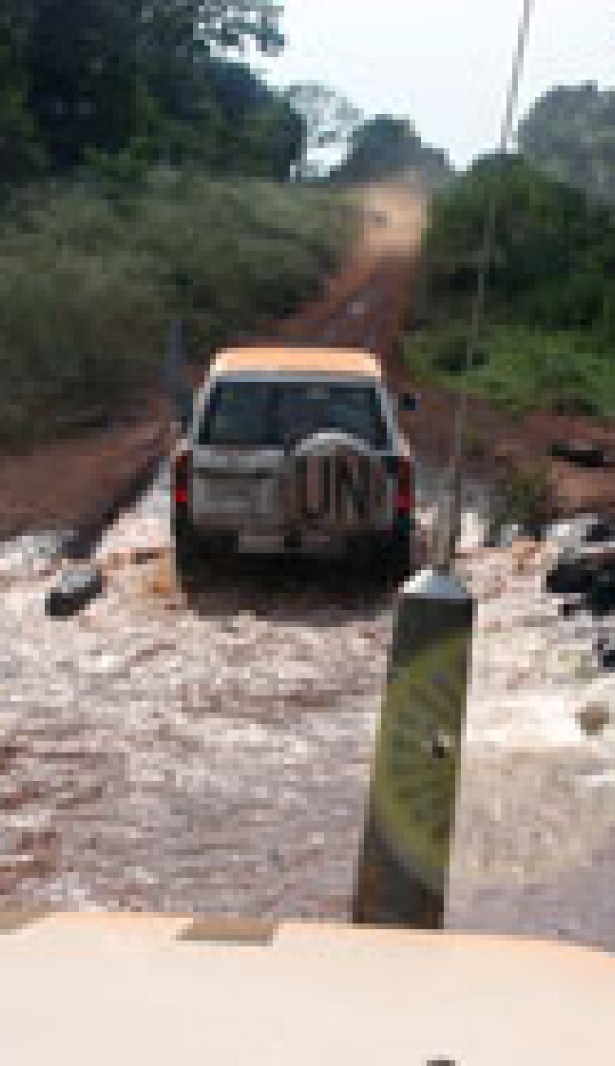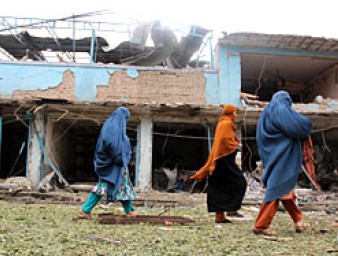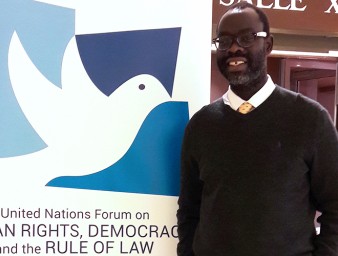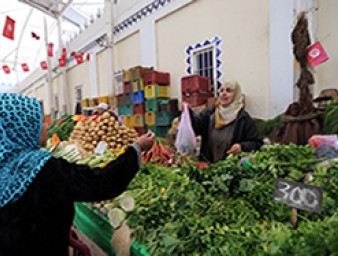Civilians deliberately targeted in large-scale killings in Central African Republic
17 January 2014
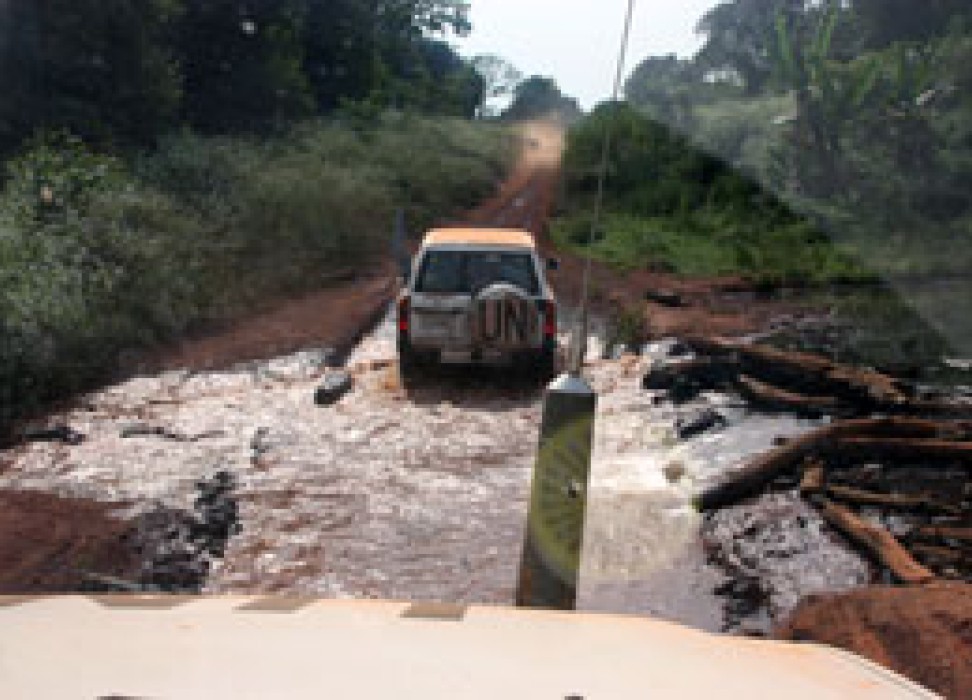
A team of UN Human Rights investigators - the second deployed in the Central African Republic to support the Human Rights and Justice Section of the UN Integrated Peacebuilding Office in the Central African Republic (BINUCA)- has found from investigations led from 12-24 December 2013 that large scale killings of Christian and Muslim civilians were carried out on 5-6 December 2013 in the capital Bangui and Bossangoa, and that smaller scale retaliatory attacks have continued since.
These killings were attributed to the anti-Balaka, a vigilante group of predominantly of Christian faith, and the ex-Séléka, a largely Muslim coalition of rebel groups who deposed former president François Bozizé in a coup in March 2013. Civilians were also found to have taken part in killings, mostly out of retaliation for the abuses they had endured since the coup.
The latest civilian killings were added to a long list of serious violations committed since the beginning of the crisis by Bozizé troops, the Séléka coalition, and the anti-Balaka group comprising loyalists of ousted president Bozizé. The 5-6 December events showed that yet another level was attained in the escalation of the violence as civilians started taking part in the conflict.
The monitoring mission’s preliminary findings highlighted that on 5 December, anti-Balaka forces mounted coordinated attacks against the ex-Séléka in Bangui, also deliberately targeting Muslim civilians, including women and children.
The same day, the French military launched ‘Operation Sangaris’ aimed at restoring security and providing support to the African-led peace keeping operation
“The attack of 5 December in Bangui prompted a series of reprisals by ex-Séléka and anti-Balaka, which spiraled into sectarian violence against and between Muslim and Christian civilians in the capital and elsewhere in the country. An estimated 1,000 persons were killed in Bangui as a result of the 5 and 6 December violence.”
On 5 December, the ex-Séléka also launched reprisals against the Christian population in Bossangoa killing dozens, which in turn prompted a counter-attack by anti-Balaka who took control of the town.
On 6 December, an attack by ex-Séléka in Bossangoa was averted by commanders of the Multinational Force of Central Africa (FOMAC), which spared the lives of 40,000 internally displaced persons who had sought refuge at the local church.
The UN investigators received multiple accounts of sexual violence, torture, enforced disappearances, ill-treatment, arbitrary arrest and detention, as well as widespread and destruction of homes and places of worship.
They further noted that despite the deployment of Sangaris and the increase in African Union troops, and subsequent cantonment of ex-Séléka, attacks against the civilian population continued on a daily basis throughout December. Moreover, the mission received multiple reports that the disarmament of ex-Séléka carried out by the French forces left Muslim communities vulnerable to anti-Balaka reprisals.
“There were several incidents in Bangui during which anti-Balaka or hostile mobs targeted and killed recently disarmed ex-Séléka elements and their families,” the investigators said.
The UN Human Rights Office (OHCHR) has encouraged religious leaders to repeat calls for tolerance and respect within their communities.
“National authorities and the international community should also prioritise accountability for perpetrators of serious human rights violations and abuses. In this regard, OHCHR welcomes the establishment of an international Commission of Inquiry which will send a strong message to perpetrators of violations and abuses that the international community is committed to holding them accountable,” the investigators stressed further.
The UN Human Rights Office has also been working on strengthening the Human Rights and Justice Section of the BINUCA.
The UN High Commissioner for Human Rights, Navi Pillay, will give a fuller account of the investigators’ findings on the current situation in Central African Republic during a Special Session of the Human Rights Council in Geneva on 20 January.
17 January 2014
